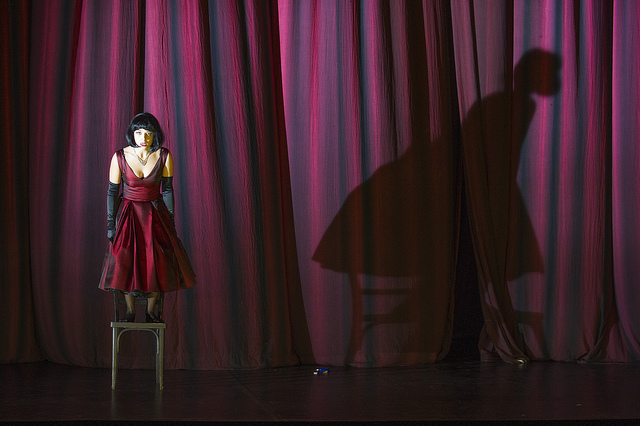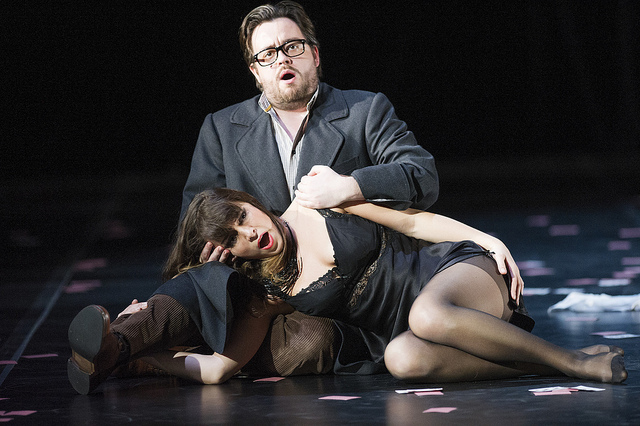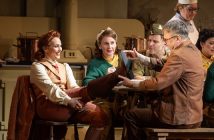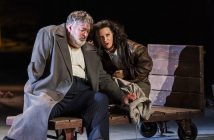The 1852 novel by Alexandre Dumas, La dame aux Camélias is a story of two lovers who defy social convention only to be ultimately defeated by fate and was a tale that immediately inspired Giuseppe Verdi to adapt for opera. Changing the title to La Traviata, meaning “fallen woman” his romantic masterpiece was first performed in Venice in 1853 and, although not initially well received due to miscasting a plump and aging soprano as the heroine, the mesmerising libretto by Francesco Maria Piave provided such a perfect partner to the sumptuous score, that it was considered the composer’s greatest work on its next revival.

What initially read as a great coup for the ENO, staging German opera director Peter Konwitschny’s interpretation of this La Traviata in Verdi’s bicentenary year proved risky. While this production, marking the director’s UK debut, might not be to the taste of regular ENO goers, it has succeeded in dividing the critics and causing lively debate – ultimately beneficial to opera and the innovation the ENO are currently promoting. Many would argue Konwitschny’s take is too bland, while others would declare it a refreshingly bold portrait of society and the impact of social conventions on love.
Originally a three-act opera with elaborate staging and costumes, this La Traviata was mistakenly streamlined into just one act with no interval, thus depriving the audience of a vital element of the unfolding drama and suspense. Johannes Leiacker hardly deserves a mention as “set designer” giving us no more than a chair and red curtains which the cast were irritatingly choreographed to drag back and forth in order to signal a scene change or the heroine’s later demise as the curtain turned a crow-like shade of black. We all understand the impact of government funding cuts to the arts, but I fear box office takings will only dive further if audiences are continually offered such disappointingly sparce productions.

Considering the audience had no staging with which to be distracted, American soprano Corinne Winters made an imposing ENO debut as the fallen lady in question, the beautiful courtesan Violetta who falls in love with Alfredo Germont before succumbing to the tragic effects of tuberculosis. Despite the odd attempt at spluttering when the doctor is called, Winters sounded in very fine voice throughout, and, far from breathing her last, exercised an impressive pair of lungs for such a petite lady. Whilst Ben Johnson made a convincing geek, complete with cardigan, spectacles and prop travelling library, this bizarre take on Alfredo certainly made Violetta’s apparent attraction to him hard to fathom. Clearly a question of brains over beauty – or in this case voice over both.
Other strong performaces came from Clare Presland as Flora Bevoix and Anthony Michaels-Moore as Alfredo’s father Giorgio, who pleads with Violetta to break off her relationship with his son in fear of the association ruining his young daughter’s chances of marrying. Persuaded to sacrifice Alfredo, now the very meaning of her life, Violetta hurtles towards her death in an emotionally charged finale. The famous Drinking Song was a particular highlight of the evening, the chorus in full force under the guidance of Chorus master Martin Fitzpatrick, along with orchestra conducted by Michael Hofstetter, and bringing home the pure joy of this truly majestic work. This is opera without the frills – yes, you might need to bring your imagination with you but it sounds sublime.
La Traviata at the London Colisuem until Sunday 3rd March 2013. Running time approximately 1 hour 50 minutes with no interval. For more information and tickets vist the website.



